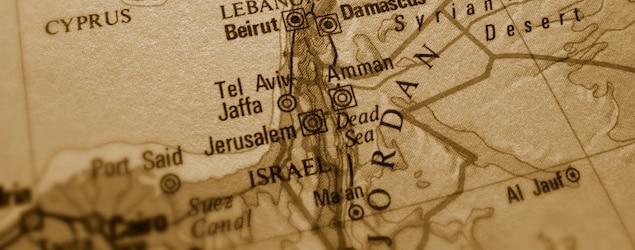Understanding What Palestinians Believe and Act On

What do Palestinians think of Israel? What do they believe about the legitimacy and efficacy of violent attacks? Daniel Polisar, a political scientist, examined more than 330 opinion surveys, carried out by reputable polling organizations, to find answers. What he pieced together is profoundly unsettling. More so than you might have supposed.
Two points from Polisar’s insightful essay leapt out at me. The first was horrifying but unsurprising. Palestinians widely endorsed terrorist attacks (including suicide bombings) — not only against Israel. For much of the last decade, Palestinians led the world in believing that Osama Bin Laden could be counted on to “do the right thing in world affairs.” (!)
The second, in its own way, was more profound. It provides a clue to how many Palestinians think about the world, how they come to the views that they act on. By a wide margin, many believe Israel to be the source of their woes even in cases where Israel’s culpability is farfetched and where Palestinian leaders ought to be viewed as at least partly responsible.
In matters that necessarily involved both Israel and the Palestinians, massive majorities blamed Israel and denied any responsibility on their side. Cases in point include the suspension of negotiations between Israel and the PLO (1997), the failure of talks at Camp David (2000), the breakdown of a ceasefire during the second intifada (2003), the collapse of the peace process (2004), the outbreak of the first Gaza war (2008), the non-implementation of the Oslo accords (2012), the outbreak of the second Gaza war (2012), and the breakdown of negotiations between the sides and the third Gaza war (2014).
Perhaps most telling, given the countervailing evidence, is this: “A large majority of Palestinians were convinced that Israel sought deliberately to target civilians [in the 2014 Gaza war], and held Hamas blameless for positioning its leadership, fighters, and weapons in populated areas.”
From that, you could infer that the self-identification of Palestinians as victims is deep-seated. And it is. But what’s so disquieting here is the manifest indifference to the facts of the matter. Israel is powerful, but obviously far from omnipotent; the Palestinian leadership is less powerful, but obviously culpable of many, many atrocities (to say nothing of its systemic internal violation of individual rights). Polisar notes that many Palestinian appear convinced Israel is “implacably hostile and even demonic”, plotting to reconquer all Palestinian/Arab-populated areas, even though any passing awareness of Israeli politics would lead you to vastly different conclusion:
the most widely held position within Israel favors the establishment of a Palestinian state in most or all of the West Bank and Gaza; a minority prefer to increase Palestinian autonomy but with Israel remaining in charge overall.
The polling data that Polisar has mined tell us that many, many Palestinians hold views of Israel and of their own cause that are divorced from — and seemingly impervious to — the facts. That kind of mindset is primed for manipulation by the commandments of an authority figure, the spell of a fevered rumor, the perverse allure of a conspiracy theory. And to paraphrase Voltaire, those who believe in absurdities can be shepherded to commit atrocities.
Grasping the outlook of the adversaries in the Israeli/Palestinian conflict is a precondition to any serious discussion of the issue. Polisar’s article, which appears in Mosaic Magazine, offers a data-driven picture of what Palestinians believe. The article deserves a wide audience.
(Originally published on Times of Israel.)



